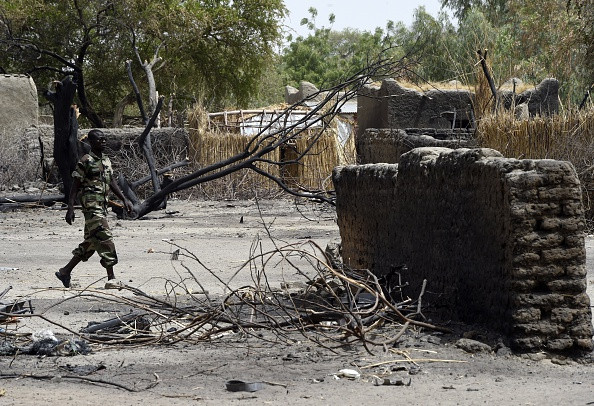Chad: 11 soldiers and 17 militants killed in suspected Boko Haram attack

At least 11 Chadian soldier have been killed in a suspected attack by Nigerian terror group Boko Haram near Lake Chad. The attack came days after 18 people were killed and 38 injured in the outskirts of Nigeria's federal capital Abuja when Boko Haram members detonated three explosives.
"Boko Haram members attacked our positions at 4.30 am (3.30 GMT) in Kaiga Ngouboua about two kilometres from the Nigerian border," a source told news agency AFP. "This surprise attack claimed the lives of 11 soldiers and wounded 13, [and] 17 Boko Haram fighters were killed. The attackers were pushed back and the army is continuing search operations in the zone."
Chad is part of a new task force against Boko Haram – consisting of 8,700 troops from Nigeria, Niger, Chad, Cameroon and Benin – which is believed to have scored some successes, such as the recapture of a key town in Borno. The central African nation intensified its fight against the terrorists after twin suicide bombings blamed on Boko Haram killed dozens in the capital N'Djamena in June.
It is believed Boko Haram carried out the attack in retaliation to Chad's participation in the regional offensive. Following the blasts, Chad banned the burqa – arguing that it could be used by terrorists as a camouflage – and announced it would round up and arrest foreigners in a bid to identify suspected Boko Haram members. Chad also bombed six Boko Haram camps in northern Nigeria. However, Nigeria denied that the territories affected by the bombing were part of Nigeria.
Who are Nigeria's Boko Haram terrorists?
Boko Haram (recently renamed Iswap) fights against Western influence in Nigeria and aims to impose its version of Sharia law in the country.
The group declared an Islamic caliphate in Gwoza, along the Cameroon border, in August 2014.
Boko Haram has raided several cities in the north of the country in a bid to take control of more territory.
Three states − Adamawa, Borno and Yobe − have been under a state of emergency since May 2013, due to Boko Haram's attacks.
Earlier in September, the Nigerian government claimed Boko Haram is surrendering, but the group said in an audio message that claims made by government and army are false.
Some analysts have also suggested that the group's leader Abubakar Shekau – rumoured to have been replaced due to his repeated absence from the group's videos – has stepped aside as the group now takes orders from leaders of the Islamic State (Isis), after pledging allegiance to it.
The attacks in Abuja occurred weeks after Nigerian intelligence warned the military had uncovered a plot by Boko Haram to attack the capital. The news came days after the country's intelligence warned dozens of people linked to the Islamist outfit had been arrested in Lagos, Nigeria's commercial hub, suggesting the insurgence could spread beyond the country's north.
© Copyright IBTimes 2025. All rights reserved.




















